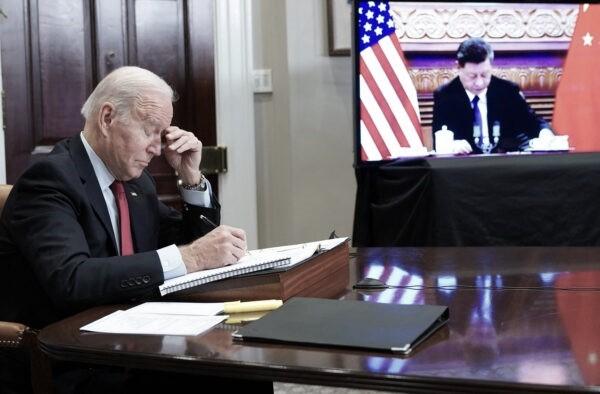President Joe Biden said on June 18 that he would speak with Chinese leader Xi Jinping “soon,” and that he is in the process of deciding what to do with Trump-era trade tariffs currently imposed on China.
Biden’s comments came amid ongoing discussion within his administration on whether to lift some tariffs on more than $300 billion worth of Chinese goods as part of efforts to rein in historic inflation. The duties were imposed by former President Donald Trump as part of his administration’s efforts to combat the regime’s unfair trade practices that have cost the U.S. economy billions of dollars.




